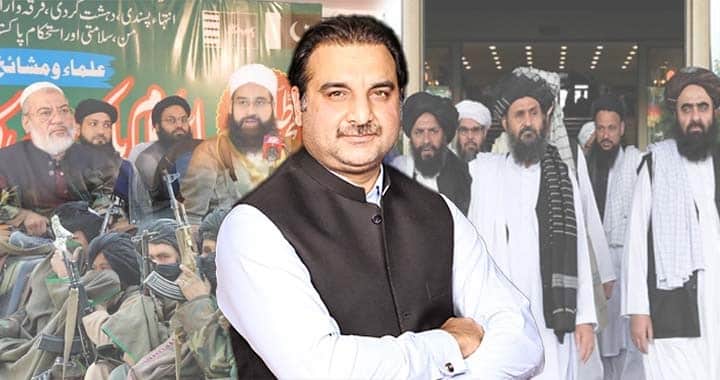Irfan Khan
In a significant development, Pakistan’s religious seminaries collectively known as the Madaris have categorically declared that they have nothing to do with extremism or any groups opposing the state. The statement, issued after a representative meeting of religious scholars on 27–28 September, sought to distance the seminaries from militancy and reaffirm their commitment to peace and education.
According to the declaration, the Madaris have clarified that any form of armed rebellion against the state is impermissible in Islam. The announcement, rooted in Quranic teachings and the Hadith, emphasised that those who take up arms against the state or declare jihad within Pakistan’s borders are acting outside the bounds of Sharia. The scholars stated unequivocally that such actions have no sanction in Islamic jurisprudence.
A key point in the statement the ninth clause asserts that “raising arms against the state is not permissible under Sharia.” The Madaris further highlighted that their centuries-old role has been confined to education, moral development, and the promotion of peace, and that the actions of extremists or militant groups cannot be associated with religious seminaries or the wider clergy.
This declaration carries weight. Pakistan is home to hundreds of thousands of Madaris students, and the scholars’ stance supported by extensive religious evidence serves as an important counter-narrative to extremist propaganda. A book titled Paigham-e-Pakistan, endorsed by leading scholars across the country, has already laid the theological foundation for this position by declaring rebellion against the state and armed “jihad” within Pakistan as un-Islamic.
However, the timing of the Madaris’ statement coincides with growing instability across the border in Afghanistan where another development is raising eyebrows in Islamabad and beyond. Reports suggest that the Taliban’s acting Foreign Minister, Amir Khan Muttaqi, is scheduled to visit India on October 9, after having earlier been denied permission to travel abroad under UN sanctions. This prospective visit reportedly focused on trade has sparked speculation about Kabul’s diplomatic realignments.
The fundamental question, however, extends beyond trade. Does the Islamic Emirate of Afghanistan now intend to cultivate ties with India at the expense of its historical relationship with Pakistan? Observers note that the timing of this outreach amid tense cross-border security dynamics is not without strategic implications.
Over the past four decades, Pakistan has hosted millions of Afghan refugees and extended support to the Afghan people through war and displacement. Yet, the Taliban government’s recent posture has begun to unsettle regional partners. While China, Russia, Iran, and Pakistan have collectively urged the Islamic Emirate to curb the activities of transnational militants operating from Afghan soil, Kabul’s hesitation to act has caused unease in these capitals.
Now, with the Taliban’s top diplomat preparing to visit New Delhi, questions arise about whether this marks the beginning of a new geopolitical tilt. Analysts fear that India could exploit the Taliban’s international isolation to forge ties that might serve its own strategic purposes particularly in countering Chinese influence and undermining regional connectivity projects linked to the China-Pakistan Economic Corridor (CPEC).
The situation grows more complex with unverified reports that the United States may regain access to Afghanistan’s Bagram Airbase through Indian facilitation. Though no official confirmation has emerged, such speculation underscores the shifting sands of regional politics. Washington’s interest in Bagram once a cornerstone of its Afghan operations reportedly ties to monitoring Chinese military developments and containing regional threats, rather than combating terrorist groups alone.
Meanwhile, rifts within the Taliban leadership are reportedly deepening, particularly between Kabul and Kandahar factions. Sheikh Hibatullah Akhundzada’s dominance has created tension among pragmatic leaders who favour diplomatic engagement. Reports of internet restrictions, internal transfers, and information suppression hint at growing uncertainty within the Islamic Emirate.
This evolving picture of Madaris in Pakistan reaffirming loyalty to the state while the Taliban appear to pivot towards India reflects a deepening divergence between religious legitimacy and political opportunism in the region. The Madaris’ statement symbolises a stabilising force, grounded in Islamic scholarship, while Afghanistan’s moves suggest a risky flirtation with external powers seeking to reshape regional equations.
If the Taliban indeed align themselves with India a state historically at odds with both Pakistan and China they risk not only alienating old allies but also inviting renewed instability to an already volatile region. The geopolitical chessboard of South Asia is being reset once again, and the consequences of Kabul’s choices may soon reverberate far beyond its borders.





